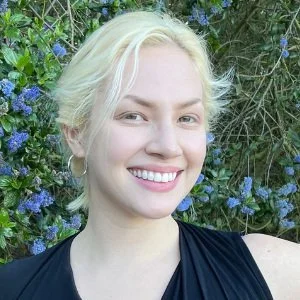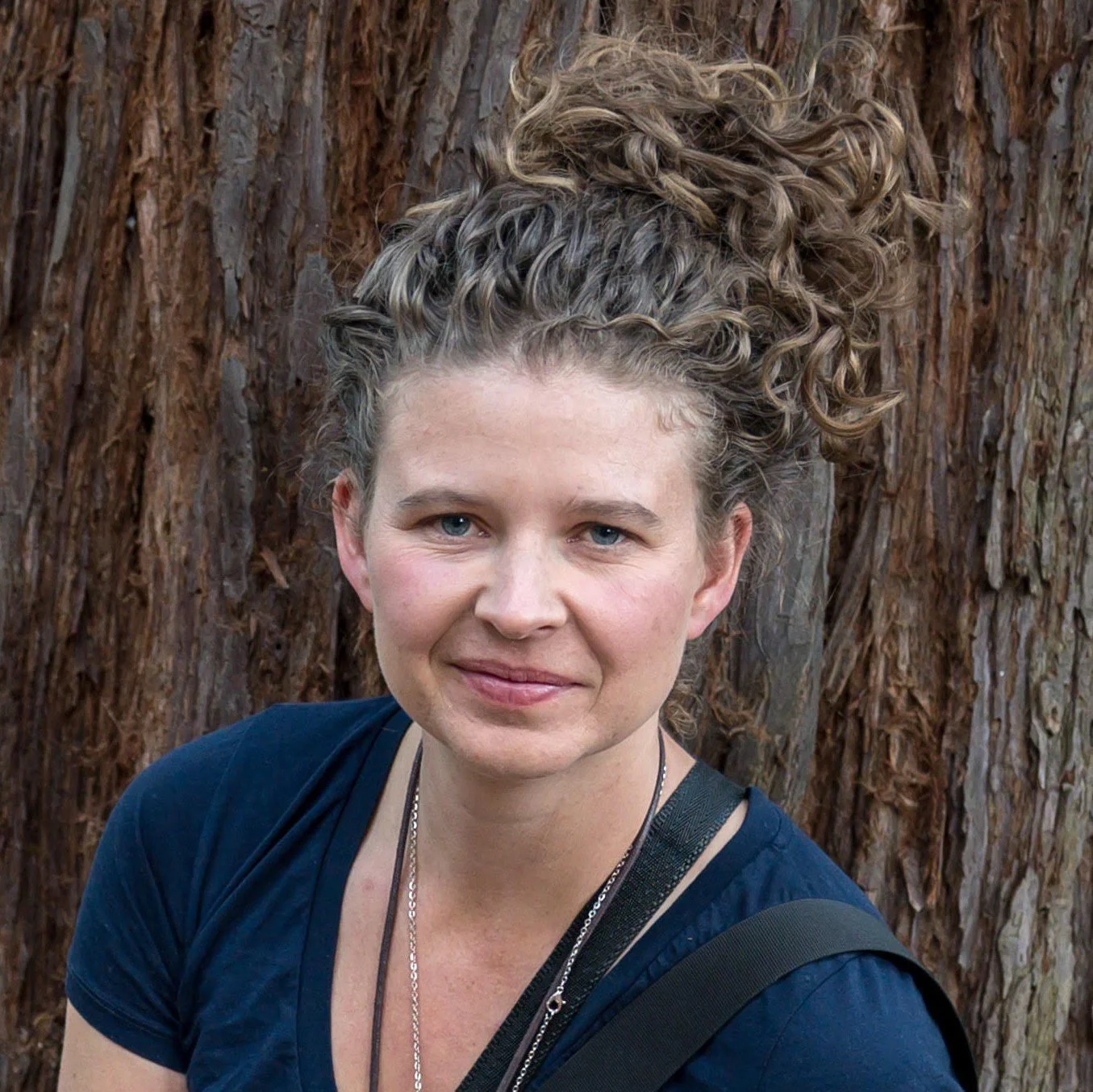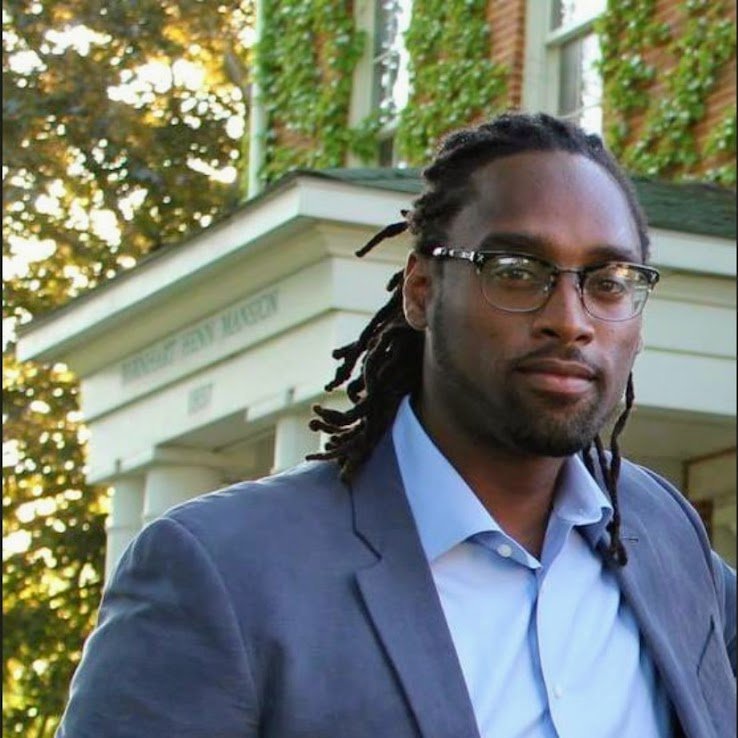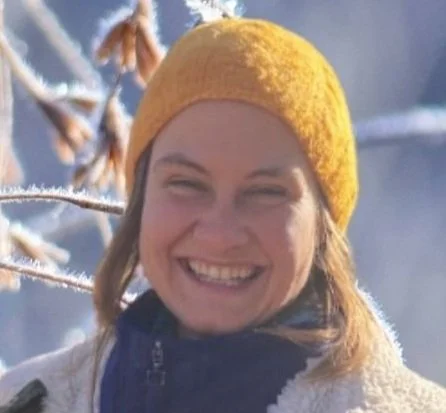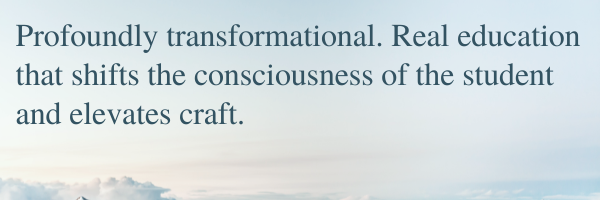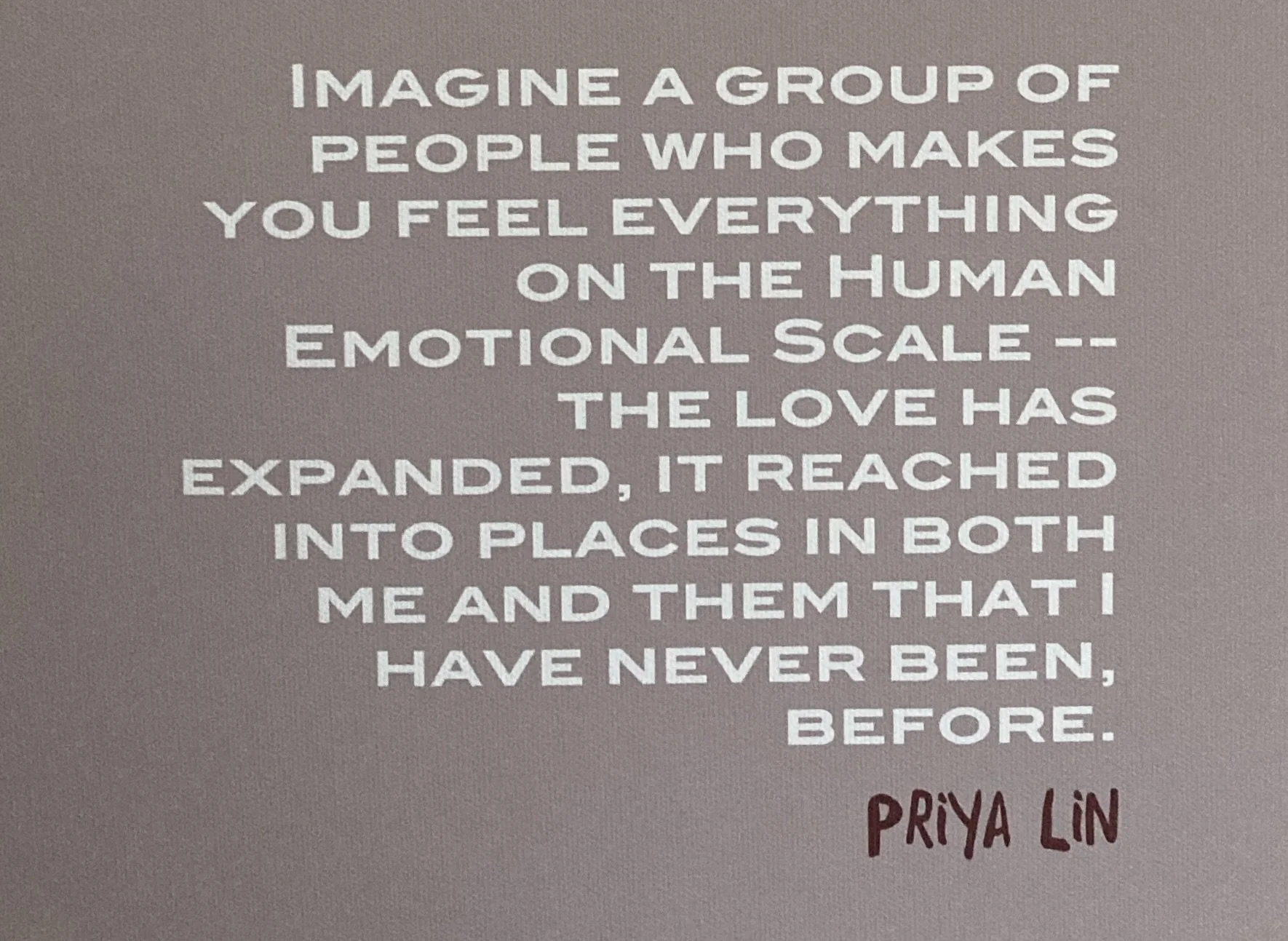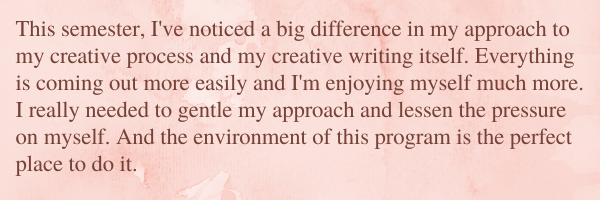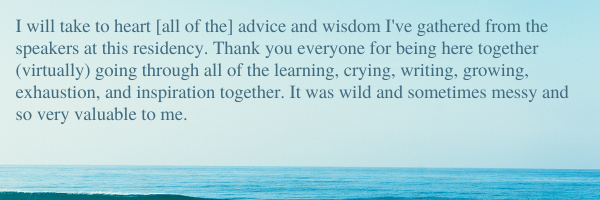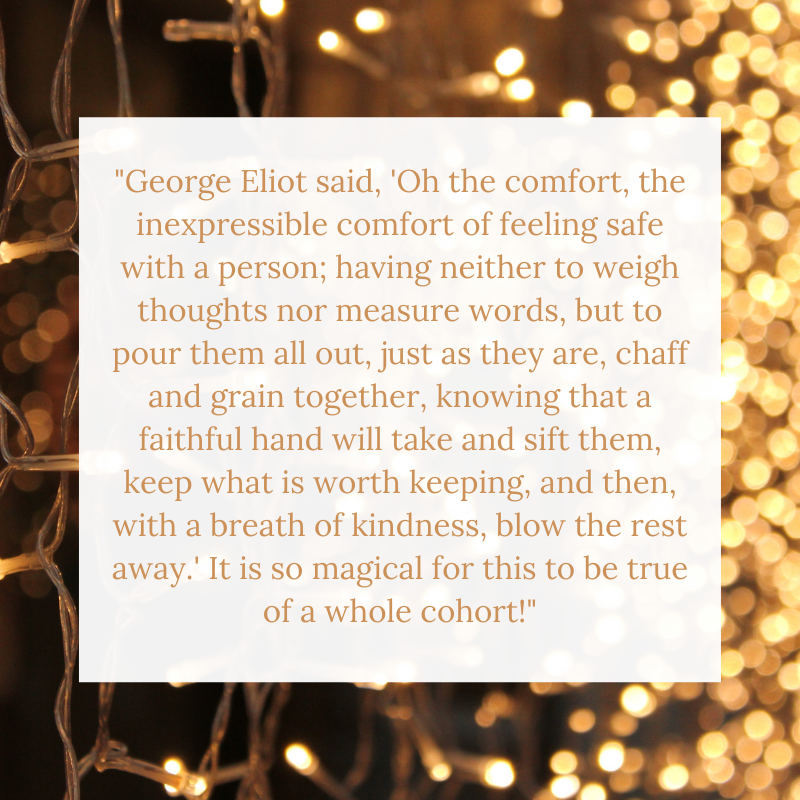MFA Testimonials:
What Our Students Say
“I wish the program never ended. And just went on forever.
(...) While working on my MFA thesis, a book-length poetry manuscript, I received invaluable feedback from multiple thesis board faculty members. I chose this program specifically for its focus on generating and completing a book-length poetry manuscript, and it exceeded my expectations. The money I invested in this program provided access to exceptional mentors and writing groups that guided me through drafting, selecting, ordering, and polishing my manuscript. The thesis board acted as an essential group of editors, with each faculty member offering unique insights and critiques that significantly enhanced my work. Allocating funding to ensure each student benefits from multiple thesis board faculty members is crucial to maintaining the MIU MFA in Creative Writing as a top-tier program.”
“My time in this program has truly flown by and has been filled with so many wonderful people and experiences. I continue to feel so grateful for the serendipity that led me to be here. I can’t imagine having a more supportive environment in which to grow as a writer.
(...) I’m so grateful for the grounding in mindfulness that this program has, and the emphasis on self-care and creating a healthy relationship with ourselves and our writing. And being around my classmates, both current and those who have graduated, feels like the antidote to competition. I love how supportive of one another we are. I love how it never feels like anyone is posturing or trying to be better than everyone. I want so badly for everyone in the program to succeed and get their work published and have an audience for what they have to share. [I feel] the value of being a supportive member of the literary community, of moving from a stance of support rather than competition.”
“It was extremely helpful to have a thesis board to work with during my last semester. Our reflective conversations supported me to clarify my goals and stay focused. Their feedback on larger aspects of my thesis as well as minutiae of language strengthened my manuscript immensely. Having three professors on my thesis board was also very important, as this offered perspectives from faculty who share my sensibilities and have a similar approach to craft and writing, as well as those with very different approaches, which ultimately also strengthened my writing. It was an important aspect of my experience in the MFA program that a book-length manuscript was the expected thesis requirement. This requirement nudged me to think broadly about the themes emerging in my writing and to seek the counsel of faculty in crafting a cohesive manuscript while focusing on the craft of writing on a smaller scale. I also now have a manuscript of publishable quality after leaving the program, which is on par with what’s expected from many other respected MFA programs.”
“You all are my greenhouse!
(...) [The MFA’s] diverse thesis board faculty and timely feedback were paramount in shaping my creative writing journey and MFA program experience. Over two and a half years, these relationships have been integral to my growth, offering unique perspectives and nuanced guidance that refine my craft and encourage exploration. The timely feedback received throughout the capstone process was so instrumental, because it allowed me and my peers to address areas of improvement promptly, which resulted in final thesis manuscripts that reflect both our individual voice and the collective craft wisdom of the faculty. Also, the presence of trauma-informed board members who know you, underscores our program’s holistic support. And it fosters a safe space for authentic self-expression. Ultimately, these elements are needed to encompass the entire journey of creative exploration and self-discovery, enhancing not only our craft but also our understanding of Self as a writer and individual.”
“DONE! But I’m sad to see it end. I am deeply grateful to my amazing mentors, professors, and cohort. Nynke Passi is truly a visionary who has created a tremendous program at MIU where writers can embark on an incredible, life-changing journey. It was an honor to work with such gifted poets and writers.
(...) Pursuing my Master of Fine Arts degree in creative writing at MIU was a transformational journey that exceeded my expectations. I chose MIU because I wanted to immerse myself in the most creative environment possible, and studying amidst meditators proved to be a rich and rewarding adventure. The prospect of compiling a publishable manuscript as a thesis was another factor that drew me to the program. With a multi-talented thesis board, I received guidance from several members, each contributing their unique expertise that helped me craft a well-rounded manuscript with professional merit and publishing potential.”
“In this program, no one is left out. I can’t find words to say how much I love and appreciate that I was accepted in this MFA. It pushed me to do my best and to be my best! I have accomplished so much, and I am not finished yet! Thank you from the bottom of my heart.”
“I am wrapping up my final semester in Nynke Passi’s absolutely brilliant MFA program. It is hard to believe that we get to learn about craft and creative process from so many incredible famous authors and that so many educational best practices are being modeled at once. The first semester I felt like Alice in Wonderland.. Now I’m just spoiled and also more challenged than I’ve ever been in my life.
Part of the program’s brilliance is that it balances total artistic creativity and innovation with total pragmatism when it comes to publishing and career preparedness.”
“Thesis defense and celebration scheduled. Three and a half years total, six semesters enrolled, one newspaper internship, and my own little freelancing business later. I wanted a career pivot, and the MFA equipped me with the skills I needed. It was a wildly transformational experience, and I met and reconnected with so many incredible people along the way. If you’ve been part of the journey, thank you! Almost there! After the academic requirements are officially checked off, I’ll be finishing up my book and getting unpublished articles out into the world.”
“Having a thesis board faculty overseeing the final stages of my thesis project was critical in getting me to the finish line. There are so many details that must be considered when it comes to shaping a thesis into a book-length manuscript, and it can feel overwhelming at times. Having an experienced faculty member guiding my process not only made it easier and less intimidating but boosted my confidence in my own stylistic choices as well. We went through many iterations of the book, changing the order of poems and experimenting with different themes, titles, and sub-sections. It was wonderful to have this kind of collaboration and to feel that somebody was invested in the success of my project. I learned that a good poetry thesis project is not just about having good individual poems but presenting them in a way that tells a story and brings the reader along on a journey. The faculty members overseeing my project helped me organize my poems in such a manner that the whole became greater than the sum of its parts. I’m proud that my thesis project turned into a poetry collection that was chosen for publication and I firmly feel that this wouldn’t have been possible without the support provided during the thesis board experience.”
“Coming to the valley, or the mountain, or the spring of one’s own art, voice, expression of self, of love, of vision isn’t always conventional. Having a thesis board of diverse faculty members and the gift of each of their witnessing the birthing of something that is the beginning of an authentic body of works, a body of bodies, a heart, an earth, an ear listening softly to the growing tendrils of their hearth, a crying birth - is a gift beyond measure. The diversity of sacred witness, each holding their own candle to the work, giving authentic, supportive reflections from their own unique understanding, viewing, knowing, unknowing - assists the student in the ultimate knowing, unknowing - trusting of their own unique voice and vision.
The encouragement the MFA faculty give each student to produce a book-length manuscript is the fulcrum of the student’s experience in the program. It offers the student the opportunity to trust their voice and see something through. Beyond developing writing as a practice, the requirement of a book-length manuscript helps the student writer develop confidence, conviction and credence in their own experience of writing, of creating art that is first and foremost for their own delight, inspiration, and journey, and second for others. It also assists in the discovery that, that medicine which medicines their own spirit can and will medicine others’. Without this requirement, the student may stay inside the safety of their own shell, for fear of the shape their heartbeat will take when it becomes a gift for the world. It is after all when we give of ourselves we truly come to know of ourselves. ”
“I am honored to have been the first to graduate from the MFA in Creative Writing at MIU. Several things come to mind when reflecting on my experience in the MFA. First, I am grateful for the academic rigor and the beautiful structure of the program. For instance, the program required us to read between ten and twenty books each semester, not only on writing skills but also by other authors in our genre. Daily writing requirements helped me develop discipline and a consistent writing practice, which are essential to a dedicated writer. Additionally, we had regular workshops where we would critique each other’s work, which was invaluable in improving my writing. I am proud of my work and know I can hold my own in the writing world. I completed a solid first draft of my novel for submission to my thesis board—which produced immense personal satisfaction. Anything less would have felt trivial. There is nothing quite like holding a completed draft in your hands and knowing that experts have helped refine and strengthen the hard work put into it.
Perhaps the best recommendation I can give for the rigorous review my work received from my thesis board of three esteemed professors is that when I put my manuscript through a comprehensive evaluation outside of MIU, it came back with rave reviews, comparing my work in the 90th percentile to the well-known author of The Color Purple, Alice Walker. That would not have happened without my thesis board’s detailed feedback and recommendations. This MFA Program should be a feather in the cap of MIU—it offers credibility and respect in the wider academic community. My writing skills were the foundation of my acceptance into two doctorate programs, Baylor University in Texas and the program I ultimately chose to pursue in psychology at Sofia University. I am grateful for my foundational experience at MIU. Not only did I hone my writing skills to a fine point, but I expanded the container of knowledge while I progressed—and aren’t both the outer and inner aspects of growth the point of education? I encourage MIU to support this program and keep it at the level of excellence it has demonstrated it can create.”
“Truthfully, the residency felt like a long, warm hug. It was quite exhilarating to suddenly become absorbed in readings from myriad meaningful and diverse voices, with workshops and discussions centered around identity, craft, ritual, and of course, writing - so much artful and exciting writing - all of which left me wondering (time and again) how I’d landed here in this fantastically creative and supportive community.
It was striking to become acquainted with so many writers who were so deeply connected to their internal worlds and creative selves in such a short space of time. Whether attending thesis readings from graduating students Minca Borg and Sherri Shields, witnessing the work of indigenous poets and / or activists, such as Kim Shuck, Loa Niumeitolu, Lehua Taitano, Denise Low, and Aileen Cassinetto, or taking part in workshops on Writing The Body, or Capturing The Vacation Mindset, I always felt valid, and as though I had something to offer, learn, or take away. It was a fantastic way to be invited into a cycle of study.
MIU’s writing community and extended family were out in force for the entire residency. Hearing other people’s voices and seeing a space for my own voice led to feeling of joy and acceptance. I was extremely and happily impacted by the amount of space that was dedicated to our diverse thinkers, and to our queer and trans artists.
The gift of craft was pervasive, not only in the consistency of the work, but in the workshops delivered, curated for really getting into the bones of writing. I found access to language and structure, which has helped me to clarify and understand elements of writing which I’d only worked with on an intuitive level in the past as a musician and song writer.”
“The Fall 2024 Writer’s Residency was a joy to be part of. It was humbling to be welcomed into this eco-system of creativity and that amongst all of these voices and participants from across the welcome, there was room for all (including me) to benefit. I felt spoilt and fed. Boldly entering into a new school, a course, a new stage in my life, it was hard to know what to imagine of expect. Sometimes it’s best just to turn up and see what happens. The FALL Residency was utterly convincing in terms of letting me know I’d landed in the right place.”
“I am so honored and proud to have seen this vision come to life, to have been part of the first cohort, and to be continuing my journey with the MFA. This program, as many have said, is insanely special. We are truly blessed, all of us, to have a safe space to be seen and heard. That is rare to find in the world today.”
“I continue to be so humbled and touched by the support of this community and by the many ways everyone is doing such authentic, deep writing.”
“My teachers at MIU taught me things without words, such as the strength of vulnerability as a human being. They taught me how to be a better human before they taught me how to become a better writer.”
“The MFA program - although literary in focus - is starting to open up professional opportunities outside of academia. It’s so true that the literary and creative emphasis gives a competitive edge!”
“This MFA is really special. The pedagogy combines so many best practices, which is rare, for not all programs are brave enough to change or to choose research and principles over entrenched conventions. This MFA is not good sprinkles on bad cake with bad frosting, it is scrumptious through and through from foundation up. The faculty have legitimacy and real world qualifications. The program combines heart and pragmatism together, through-and-through, from curriculum to evaluation to faculty to community.”
“Just reflecting on what a magical cohort and community this is. I can imagine life without textbooks, but I cannot imagine life without all of you. So grateful”
“I learned that feedback during the revision process is healthy. Instead of feeling like someone wants to come in and change your work, it’s more like have you tried it this way? How would this look if you moved that? It gives me more room to explore. (...) At the time I didn’t see how our [mentorship] packets and [assignment] due dates were contributing to having a complete manuscript by the time we were scheduled to graduate. However, looking back, each packet, each class was prepping me for this exact moment. I learned bit by bit about the craft element of poetry, and once I had a full understanding, I was near the finish line. It helped me to organize the work and say what I wanted to say. (...) I’m definitely prepared to be a writer in the world.”
“The residency meant expansion of the heart. Certain experiences and group dynamics caused my heart to open wide. Now I cannot get this music out of my head, nor the poems I am now addicted to writing. In short, my first residency changed my life...maybe even saved it.”
“Every single event at my first residency influenced my thinking about my own work. Right out of the gate with Nynke and Jennifer, [our MFA program director and full-time faculty]. Holy mother of all things beautiful! I was never so excited and proud to have these two women as my mentors and teachers. I remember after I heard each of them read their poems, I thought ‘I hit the jack pot of professionalism!’ Immediately, they opened the door of vulnerability for all students and participants. After that, I felt there was no holding back the flood gates that wished to pour from me. Students and participants alike were sharing from the depths of their soul. Nothing was off limits. People spoke about physical abuse, mental abuse. There was laughter and tears. What a beautiful bonding experience for all that attended.”
“My most significant experience (though there were many) was the evening where it was just our group of students and everybody shared work. I was struck not only by how talented and courageous each writer is, but also by how supportive and generous. It was an amazing feeling to read in a group with that much positive energy.”
“The festival put focus on global citizenship, social justice, and the impact we as writers can have on the world.”
“Our [Diversity & Creativity MFA Residency Panel] discussion highlighted the idea that a person’s existence can be inherently political, emphasizing the importance of acknowledging and valuing diverse perspectives. We shared our experiences of feeling out of context in spaces that weren’t designed for us and the significance of intentional communities in providing context and support. Today’s session also touched on the challenges of being academic trailblazer while carrying the weight of multiple intersecting identities in our MFA program. Overall, we celebrated the power of poetry and creative writing to create space for self-expression and understanding in a world where everyone’s “otherness” deserves recognition.”
“The [Creativity& Diversity MFA Residency panel] was a reinforcing reminder of how special our program is, and [how special] our group of humans. I really feel part of something that will be with me for life. I feel seen and heard, and I feel part of all your journeys. You are all part of my own journey. Very excited to spend some time processing this residency. Much came up for me that was new and interesting.”
“The understanding of consciousness and my growing knowledge in the transcendental meditation practice has been extremely helpful in calming down my active mind to a point where functionality is at its best.”
“When I applied for this MFA program at the end of last year, I was going out on a limb to pursue my education in a field that I’m passionate about. I was out of school for ten years prior, and I didn’t know what to expect from the application process, the program, and myself. In one very intense semester, I was able to discover myself via my creative process and the help of the my community / cohort, mentor, and department heads providing a net of support that I couldn’t have imagined prior to the experience.
This year started off with my life taking a huge turn in course, and I was in an unfamiliar place, following my gut and a dream. During this process, I’ve learned to be more kind to myself, to relax as well as implement discipline for myself, and to have the hunger of an eternal student. I’ve been able to learn not only from my teachers, but from my cohort, our guest speakers and the overall environment that I’ve chosen for myself. The growth that I’ve seen in my character and my work makes me believe that any change that occurs to me and my creative process will be nothing short of positive.”
“Each of the Residencies has been an exceptional experience for me, an immersion in literature, poetry, fiction, workshops, creative writing, and the exchange of ideas unlike any I have previously experienced. The Residencies have served as a launchpad for the following semesters by inspiring ideas, providing direction, and opening doors to possibilities in the world of creative writing.”
“I gained immense value from the readings and wisdom provided to us completely uninhibited without restriction by these brave literary heroes. I have become freer about writing. am becoming more clear and confident as a thinker, writer, reader and speaker to do the work in this world that needs to be done.”
“One thing the residency does is prime the pump for creative work and a creative life.”
“{We have developed] a bold bravery as a group, feeling shy and terrified to share our work, and then slowly blossoming and sharing the most intimate parts of our being with the class, knowing that no judgment is being passed.”
“My first residency changed my life. I would put it up there with the birth of my children, it was that impactful.”
“This residency is going by way too fast. I feel like I’m on some sort of a conveyor belt of the quantum leap.”
“I loved the periods of intensive generative workshops at the beginning of each semester. I also loved the workshops and peer groups in the MFA. I felt that doing The Artist’s Way as a group helped bond us and work through new process. I loved the exposure to the duende, and I loved the practical and professional aspects of the program, especially Literary Theory and the class on marketing. These were invaluable courses. I loved the support and all the time set aside for writing. I felt the self-generated bibliography was also a blessing—I never felt like I had to read something I didn’t want to read.”
“The 2022 Spring Residency was amazing, and I came away with so many poems in my soul and bone. The energies traveled through my spine as in ‘duende’ while I listened to the poets’ readings. Yesterday and last night, the poets ended the residency with a bang! I came away knowing that I’m a ‘cloth and one day will be unraveled.’ ‘Darkness is the reason for light.’ ‘The poem knows more about us than we do.’ I learned how much poetry helps me connect to people who think like me, how it saves lives—like it saved mine. I understand that just because I don’t think like others, it is alright, and so am I. As long as I live, I will let my poems continue to speak for me!”
“The MIU MFA is about more than learning to write well. It is a transformative experience. I am not the same person who began this program two years ago. I am 66 years old. I thought I was too old to be a student, to meet the challenges and fulfill the requirements of a master’s degree. I no longer think that way. I now think I am too young to stop learning and growing and doing the things I love. And I love to write now. I owe all that to the professors of this program who are unfailingly kind, encouraging, and enthusiastic.”
“What moved me the most about the entire residency is the genuine care to support each other in our writing community with diversity and empowerment. In this way we’ve reminded each other to continue to be unapologetically ourselves in our expression, including general connection to the world and to art.”
“It was amazing to hear writers of so many races, ages, gender identities and orientations share their work during the residency. The balance of subjects and types of writing offered was great. As a poet, I got to hear from many amazing poets but also was pushed to think about writing in other genres.”
“Now that I’ve nearly finished my thesis project and my critical introduction, I’m reflecting on how much I’ve learned about taking responsibility for my own experiences and outputs. With the thesis project, I felt from the beginning that a poetry collection by nature is more personal. I practiced shaping it and reshaping it in terms of line edits, poem titles, poem order, and sectioning because I wanted to find a physical shape that resonated with me. It is still in process and likely will continue to evolve even after I submit it, but I feel empowered to keep working and checking in with myself at each stage to make sure it feels right in my bones. (...) Ultimately, I learned that being a writer means continuing to be a person living life while at the same time trying to take moments from life and turn them into poetry, and art. process of writing my Critical Introduction to the Theiss was especially helpful in showing me how to claim responsibility for myself as a human making art, however imperfectly. It showed me how to stand behind what I believed in, what interested me and what inspired me about poetry and the writing process. It helped me step into myself as a writer in a more solid way.”
“Every poet brings truth to their work that I am inspired to achieve in my own writing. Poetry is growing on me. But I also love getting to know the poets, hear their thoughts about life and literature,. enjoy their personalities. And I love being with my classmates. Hearing their comments and responses is a powerful, resonating experience that stays with you.”
“This is an awesome program. I just completed the first semester and I am looking forward to the second. Excellent bibliography of contemporary authors, expert mentors, challenging classes, and intensive yet supportive workshops.”
“Last semester was amazing. The residency was intense and beautiful. This program challenges me to be the most refined and authentic than I have ever been. I feel very lucky. So, thank you.”
“The Residencies are intense and profound. There are years worth of wisdom packed into two weeks. So far, the most impactful evening was the anthology reading by four renowned writers about social justice.”
“The aspects of this MFA that helped me the most with trusting myself as a working writer were the pieces of feedback and advice I received from mentors and the way in which they supported me in finding my own unique voice. I appreciated how I was always encouraged to do what felt most inspiring or interesting for my own creative process rather than working to appease or please an authority figure. I learned to trust myself more as a writer because I felt that my classmates and mentors trusted me to take care of myself and know my own process. I loved that we could all be ourselves and celebrate our differences without having to compare or compete. ”
“This is a magical MFA! I love it! I can’t imagine not having this system of support, these creative classmates as my new family. I am so happy to be here and don’t want to leave!”
“Even after a full day of work, I notice I am still excited to attend the weekly webinar. What allows me to stay focused and engaged is the community of this course. sharing creative work or discussing our successes and challenges.”
“Each residency is richer than the prior one, and they are all unparalleled. The daily discussion boards and the night of students reading their work to each other create a lifelong bond between the cohort that is essential.”
“I feel like each residency has its own special flavor, and ending with Danusha Laméris and Molly Fisk seemed like the perfect way to celebrate the overall feeling of this residency. It was nourishing and yet grounded. There was difficult and beautiful truth-telling. There was acknowledgment of pain and also such hope for a better future. There was so much humor and so much quotable wisdom.”
“I’m proud of overcoming my writer’s block and developing tools to keep writing in the future. This program helped give me the language to talk about writing in a more precise, practical way. I learned so much about the creative process, craft, editing, workshopping, literary theory, and marketing. I love editing and giving my fellow students feedback on their work, to help them make their piece the best it can be. I have so much more confidence in my editing skills now as well as my creative skills, hopefully balancing my creative and critical selves.”
“I can honestly say I have made a conscious effort to remove from my life the people and environments that negatively impact my writing, or my creative process in general. I can attribute this practice of courage and self-care directly to my classes at MIU, and Nynke’s classes in particular. I only wish I knew about this kind of open channel inside me twenty years ago.”
“The quality of mentor comments is so consistently good. The comments are always thorough. with attention to detail, honest, useful, critical when necessary, but always encouraging. Writing is a very sensitive process; it is easy to be put off by someone who reads your work..The MFA director knows how to navigate that process and has clearly hired professors who know how to do it, too. That safety and depth of feedback is invaluable in a program of this kind.”
“I found the many opportunities we had for self-reflection (essays, classes, discussion boards, meetings with mentors) to be invaluable. I have never had so much space to reflect on my creative process and it helped me immensely to understand my blocks and overcome them. I also appreciated the way this program illustrated the realities and challenges of being a writer, particularly the practicalities of marketing, publishing, and making money, without making us feel hopeless. There are many ways to make a living as a writer. Learning more helped me feel more prepared and more able to carve a space for myself in that world.”
“I have learned more in the last residency and in my last two creative process classes—in terms of consciousness, poetry, minimalist forms, other works of art, empathy, creativity, and the mystical—than in my entire adult life. And this is not exaggeration.”
“In this creative process course, we were given this precious opportunity to pause and make community with others while listening to our inner creator. Since I became a part of this MIU MFA community, my life has changed. I have found increased meaning in my job, my relationships, my health, my spiritual practices, and my future plans. ”
“Thank you for being such a wonderful mentor. And for creating this incredible MFA program! I feel like I am exactly where I am supposed to be.”
“The use of narrative evaluation in this MFA program has completely transformed my educational experience. It’s changed the way I produce creative work and positively affected my relationships with instructors and mentors. Rather than viewing my professors as authority figures to please, I now see them as supportive guides who are invested in my success and self-development. The narrative evaluation process gives me the autonomy to set and follow my individual creative goals while getting highly personalized feedback along the way. Rather than hustling for approval, I’m constantly checking in with myself to see if I’m meeting my expectations. For creative writing, narrative evaluation seems like the perfect fit because it allows us to focus on and refine our specific creative processes. Instead of being reduced to a number or letter grade, through the narrative evaluation process, I’m allowed to be a human and see my instructors as human too. Working with narrative evaluation has been empowering, liberating, and ultimately, has motivated me to do better work.”
“It’s crucial to note that workshopping went so well because of the time and attention devoted to cultivating a culture of kindness, authenticity, and openness during the residencies and in every course. This container of genuine care, respect, and trust is what makes innovation and experimentation possible. We were all able to request more feedback and more varied types of feedback thanks to the unsilencing of the workshop, which allowed us to dig into subtler elements of craft. Please keep introducing and practicing a range of workshopping approaches in every residency, and keep taking the time to build a uniquely nurturing and creative community.”
“I can’t stop thinking about my thesis and critical introduction to the thesis. The other day, I missed a highway exit because I was thinking about cows (cows are recurrent in the thesis, it turns out, which no one forewarned me about and I didn’t know ahead of time).
The hyperfluid blend of discovery, synthesis, and creation is not tidy. I increasingly feel that I am inside of nested and intersected stories, that I am both inside of and outside of the stories, witnessing the collisions of zeitgeists and egregores. Sometimes I crave human interaction but then if anyone strikes up a conversation with me, I only talk about my thesis and anything they could say will somehow spark some insight about the thesis.”
For testimonials from Nynke Passi’s classes, continue reading here.
